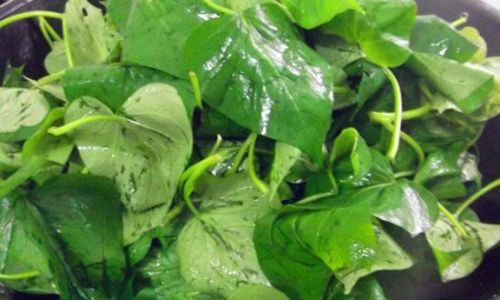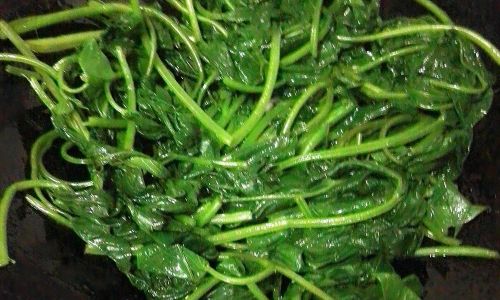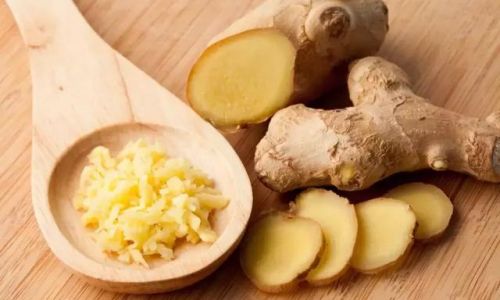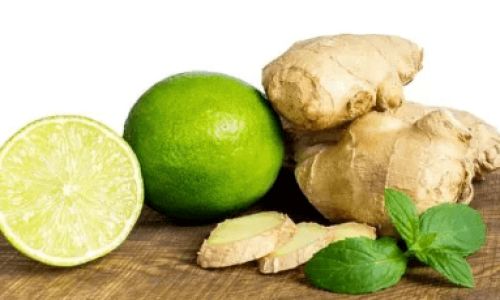In an era where late-night work sessions, binge-watching shows, and digital engagement have become the norm, the “night owl” lifestyle is increasingly common. However, sacrificing sleep and disrupting the body’s natural circadian rhythm can lead to fatigue, weakened immunity, and long-term health risks. While no fruit can replace the restorative power of sleep, incorporating specific nutrient-dense fruits into your diet can mitigate some of the downsides of staying awake late. This article explores 15 fruits packed with vitamins, minerals, antioxidants, and other compounds that support energy levels, cognitive function, and recovery for night owls.
Bananas: The Instant Energy Booster
Bananas are a night owl’s best friend, offering a trifecta of potassium, magnesium, and natural sugars. Potassium regulates electrolyte balance, preventing muscle cramps and dehydration—common issues for those who stay up late and rely on caffeine. Magnesium, often dubbed the “relaxation mineral,” aids in calming the nervous system and improving sleep quality. Additionally, bananas contain tryptophan, an amino acid that converts to serotonin and melatonin, hormones crucial for mood stabilization and sleep regulation.
For night owls, a midnight snack of banana slices with almond butter provides sustained energy without the crash associated with sugary treats. The fruit’s high fiber content also ensures slow glucose release, keeping blood sugar levels stable during nocturnal hours.
Berries: Antioxidant Powerhouses
Blueberries, strawberries, and raspberries are rich in antioxidants like anthocyanins and vitamin C, which combat oxidative stress caused by sleep deprivation. Oxidative stress accelerates aging and weakens the immune system, making night owls more susceptible to illnesses. Berries also enhance brain function by reducing inflammation in neural pathways, a critical factor for maintaining focus during late-night tasks.

A handful of mixed berries paired with Greek yogurt makes for a nutrient-dense late-night snack. Their low glycemic index also prevents blood sugar spikes, a common pitfall of nocturnal eating.
Oranges: Vitamin C and Hydration Heroes
Late-night screen time and artificial lighting expose night owls to blue light, which suppresses melatonin production. Oranges, loaded with vitamin C, bolster the adrenal glands—key players in stress response and hormone regulation. Vitamin C also aids in collagen production, preserving skin elasticity and counteracting the dull complexion often linked to sleep deprivation.
Moreover, oranges are 85% water, helping night owls stay hydrated in environments where dehydration from caffeine or dry indoor air is common. A glass of fresh orange juice or sliced oranges with a pinch of salt can replenish electrolytes and vitamins during overnight hours.
Kiwi: The Sleep-Inducing Fruit
Studies suggest that consuming kiwi before bed improves sleep onset and duration. This fuzzy green fruit is a rare dietary source of serotonin, a neurotransmitter that regulates sleep cycles. It also contains folate and antioxidants like vitamin C and E, which reduce inflammation linked to insomnia.
For night owls aiming to reset their sleep schedule, eating two kiwis an hour before bedtime may enhance melatonin synthesis. Pairing kiwi with a light protein source like cottage cheese creates a balanced, sleep-promoting snack.
Tart Cherries: Nature’s Melatonin Supplement
Tart cherries are one of the few food sources of melatonin, a hormone that signals the body to prepare for sleep. A 2012 study found that adults who drank tart cherry juice experienced 1.5 hours more sleep per night compared to a placebo group. Their anti-inflammatory properties also alleviate muscle soreness, a boon for night owls who skip morning workouts due to fatigue.
Incorporate frozen tart cherries into smoothies or enjoy a small glass of unsweetened cherry juice post-dinner to harness their sleep-enhancing benefits.
Avocado: Creamy Sustenance for Late-Night Focus
Avocados are a night owl’s secret weapon for sustained energy. Their monounsaturated fats and fiber provide a slow-burning fuel source, preventing the 3 a.m. energy crash. Avocados also contain lutein, a carotenoid linked to improved cognitive performance, and potassium, which supports nerve function and muscle contractions.
Mash half an avocado on whole-grain toast or blend it into a chocolate-avocado pudding for a decadent yet brain-boosting treat.
Pineapple: Digestive and Anti-Inflammatory Aid
Night owls often rely on heavy, late-night meals, which can lead to bloating and indigestion. Pineapple contains bromelain, an enzyme that breaks down proteins and reduces inflammation in the gastrointestinal tract. Its high vitamin C content also strengthens the immune system, which weakens with sleep loss.
Enjoy pineapple chunks as a standalone snack or add them to salads for a tropical twist. Avoid consuming pineapple too close to bedtime, as its acidity may cause heartburn in some individuals.
Grapes (Especially Red and Purple Varieties): Heart-Healthy Delights
Red and purple grapes are rich in resveratrol, a polyphenol with antioxidant and anti-aging properties. Resveratrol protects the cardiovascular system, which is strained by the stress hormones (like cortisol) elevated in sleep-deprived individuals. Grapes also contain melatonin, making them a dual-purpose fruit for night owls.
Freeze grapes for a refreshing, guilt-free dessert or add them to cheese platters for a balanced late-night snack.

Apples: Fibrous Fuel for Alertness
The old adage “an apple a day keeps the doctor away” holds truth for night owls. Apples’ high fiber content stabilizes blood sugar levels, preventing the energy slumps that often strike during all-nighters. Their quercetin, an antioxidant, enhances brain function and protects against cognitive decline linked to chronic sleep deprivation.
Pair apple slices with peanut butter for a satisfying crunch or bake them into oatmeal for a warm, comforting late-night meal.
Mango: Vision and Skin Savior
Screen time before bed exposes night owls to blue light, which damages retinal cells and accelerates skin aging. Mangoes are rich in beta-carotene and vitamin A, nutrients crucial for eye health and skin repair. Their natural sugars also provide a quick energy boost without the jitters associated with caffeine.
Blend mango into smoothies or enjoy it frozen as a sorbet alternative for a refreshing late-night treat.
Papaya: Digestive and Skin-Repairing Fruit
Papaya’s papain enzyme aids digestion, making it ideal for night owls who indulge in heavy or spicy late-night meals. Its high vitamin C and E content also combat free radicals, preserving skin firmness and reducing dark circles—common complaints among those who burn the midnight oil.
Combine papaya with lime juice and chili flakes for a savory-sweet snack or add it to salads for a tropical flair.
Pomegranate: Anti-Inflammatory and Heart-Protective
Pomegranate seeds are packed with punicalagins, potent antioxidants that reduce inflammation and protect against heart disease—a concern for night owls with elevated stress levels. Their ellagic acid also supports liver detoxification, aiding the body in processing late-night indulgences.
Sprinkle pomegranate arils over yogurt or mix them into guacamole for a burst of color and flavor.
Coconut Water: Hydration and Electrolyte Replenishment
While not a fruit in the traditional sense, coconut water is a hydration powerhouse. Its potassium and magnesium content replenish electrolytes lost during sleep deprivation, while its natural sugars provide instant energy. For night owls prone to headaches or fatigue, coconut water offers a refreshing alternative to sugary sodas.
Dates: Natural Sugar and Fiber Combo
Dates are nature’s candy, offering a quick energy boost without the artificial additives in processed snacks. Their fiber content slows sugar absorption, preventing crashes, while their magnesium and potassium support muscle relaxation. Stuff dates with almond butter or walnuts for a satisfying, nutrient-dense treat.
Lifestyle Tips for Night Owls
While fruits are invaluable, they work best when paired with healthy habits:
- Stay Hydrated: Dehydration exacerbates fatigue; pair fruits with water or herbal teas.
- Avoid Heavy Meals: Opt for light, fruit-based snacks to prevent digestive discomfort.
- Limit Caffeine After 2 p.m.: Caffeine disrupts melatonin production; switch to decaf or herbal alternatives.
- Prioritize Natural Light: Expose yourself to morning sunlight to regulate your circadian rhythm.
Conclusion
Night owls face unique health challenges, but a diet rich in specific fruits can provide a protective shield. From bananas’ energy-sustaining potassium to tart cherries’ melatonin-boosting properties, these fruits offer a holistic approach to mitigating the downsides of late nights. However, they are not a substitute for sleep—prioritizing rest remains paramount. By blending these fruits into your nocturnal routine, you can nourish your body, sharpen your mind, and rise to meet the dawn with renewed vigor. Sweet dreams—or in this case, sweet fruits—await.





0 comments